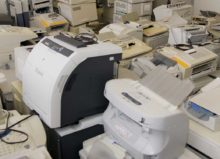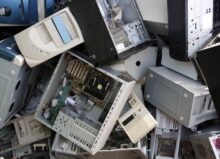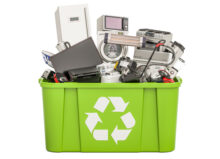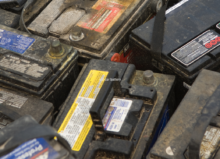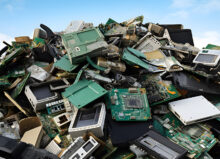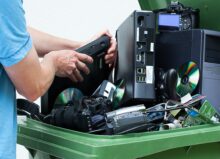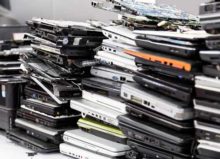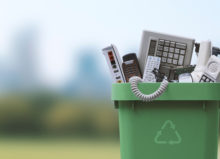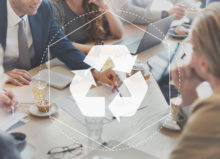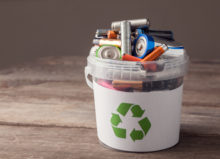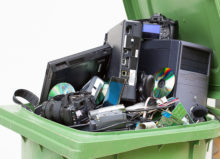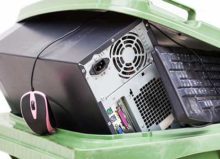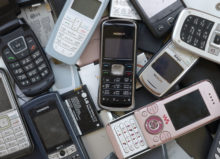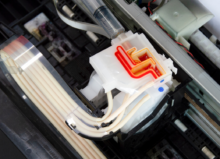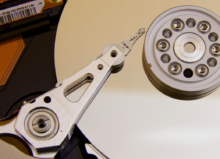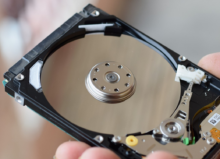E-Waste Recycling: A Good Choice for the Environment
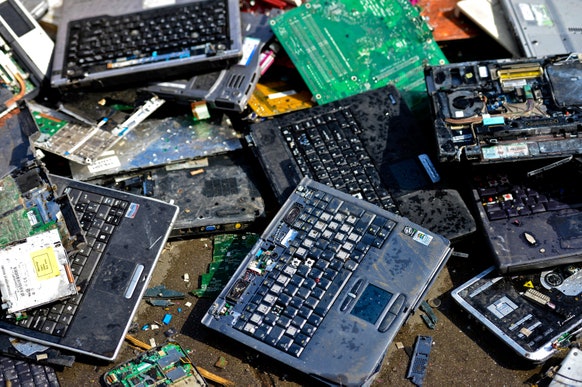
Electronic waste is a big environmental problem around the world. We are disposing of huge quantities of outdated or broken electronic devices each year. Instead of tossing them in the garbage, a great solution is to recycle old electronics, which allows the materials from products to be reused or repurposed in other ways. There are a number of goods that are now being created using recycled resources. Proper e-waste disposal is one of the best ways to reduce our impact on the environment.
Recycling Advantages
- Protect natural resources: The raw materials needed to produce an ever-growing demand for new electronic devices taxes our natural resources. Material reuse can greatly reduce the stress on the environment.
- Reduce toxic waste: E-waste contains a number of highly toxic elements, such as cadmium, chromium, mercury and lead and others which pollute groundwater and air. It’s essential to reduce exposure to these substances through recycling programs.
- Conserve landfill space: Waste disposal is consuming vast amounts of land due to our consumer-driven culture. We need to decrease the trend of overflowing landfills by reusing materials.
- Produce new products: New products are finding their way to stores through e-waste reclamation. Many customers now look for recycled goods because they understand the importance of the reduce, reuse and recycle environmental approach.
- Save energy: It takes much less energy to reprocess electronics for other uses than to extract raw materials from scratch to make goods. Energy savings impacts all of us in terms of lower costs and better resource management.
- Repurpose old devices: Purchasing new phones is becoming increasingly unaffordable for many of us. Refurbishing electronic devices or reusing their valuable parts helps lower costs for buyers.
- Create jobs: Job creation is an important factor in e-waste processing. Workers provide an invaluable service to their communities and employment opportunities continue to grow.
Recycling Action
Globally, large amounts of e-waste go into landfills each year. In fact, only 12.5% of all electronics products are recycled. This statistic is stunning when we consider that over 150 million phones are disposed of annually in the U.S. alone. The problem is compounded by retail incentives to keep purchasing new products.
Recycling is imperative to our collective futures. Energy waste and pollution increase greenhouse gases that contribute to the degradation of the ozone layer and of our overall health. The decision to responsibly handle our e-waste disposal is good common sense and good business.
Recycling Innovation
The consumer-goods market is making inventive strides with e-waste merchandise. Here are some popular items manufactured from recyclables.
- Furniture
- Jewelry
- Shoes
- Home decor
- Art
Large scale recycling is also used in making new electronic goods, plastics and biofuels.
Companies are just getting started with concepts for reusable materials. Consumer sentiment drives the desire for better resource management and with that comes smart product development.
Recycling Ethics
It’s true that recycling makes many of us feel better about our choices. When the time comes to purchase a new phone, laptop or TV, the ability to sensibly dispose of our old electronics gives us decision-making power. We can research local businesses that take these products and do our part to safeguard the environment. Recycling doesn’t solve every e-waste disposal issue, but it does give an ethical and sound answer in dealing with a problem that presents serious future consequences.
Recycling Expertise
It’s important to find a reputable recycling company that is meticulous about processing and careful to protect the environment. Professional e-waste recyclers will either refurbish and repair broken items for resale or prepare the raw materials to make new products. Experts will make the effort to meet customer needs and make certain all devices are reused or recycled in a purposeful and sustainable manner.

